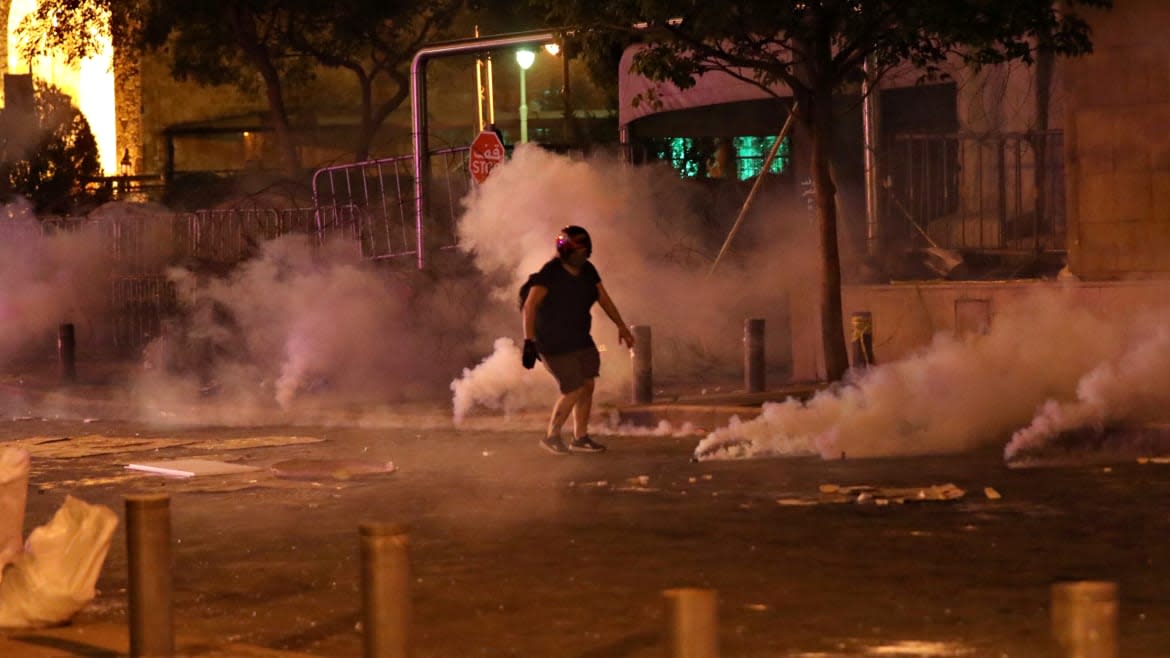Riots in the Rubble: Beirut Explodes in Violence, Protesters Gassed After Deadly Blast

Police in the Lebanese capital of Beirut used tear gas on protesters who took to the streets Thursday night to demand accountability over the monstrous Tuesday explosion that killed at least 150 people and injured more than 5,000. Small fires were set in front of the main parliament hall and angry people threw rubble from the blast at police in riot gear.
Beirut Ignored Public Warning There Was a Russian ‘Bomb’ at the Port
A paper trail that shows how government officials ignored warnings for more than six years about the 2,750 metric tons of ammonium nitrate that was carelessly stored in a port hangar before it detonated has led to widespread calls for an independent investigation into the blast.
Prosecutors have detained 16 port staff over the incident, but no government officials have yet been formally implicated, despite allegations that they ignored requests to remove the explosives from the city’s main port. Lebanon’s new prime minister, Hassan Diab, promised that those found responsible would pay a heavy price.
At least two Lebanese officials have resigned in a show of solidarity with protesters and to disassociate themselves from the government.
Even before the deadly explosion, protesters had regularly demonstrated against the alleged government corruption that has led to economic failures in the country.
The so-called October Revolution that started last fall led to violent clashes between demonstrators and police—despite the COVID-19 pandemic. On Thursday, Beirut registered 255 new infections, marking the largest single-day increase since the pandemic began.
International support has been swift, and many among the Lebanese diaspora—which is triple the in-country population of five million—have promised to aid in the rebuilding of the small nation.
Get our top stories in your inbox every day. Sign up now!
Daily Beast Membership: Beast Inside goes deeper on the stories that matter to you. Learn more.

 Yahoo News
Yahoo News 
